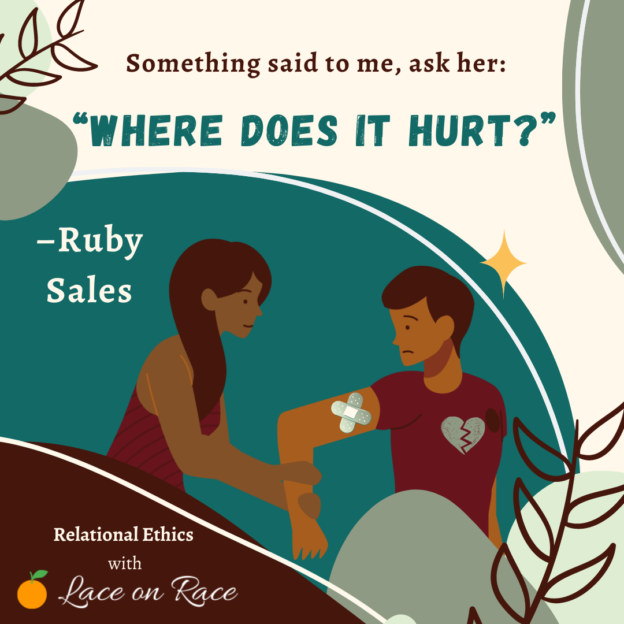The “On Being” interview between Krista Tippett and Ruby Sales is short, but powerful.
This is about ‘circling back’ to what Krista and Ruby call religion, but it can also considered to be ‘coming back to our original convictions before life and conditioning stripped them out’–whether the root of those convictions and understandings folds in what we think of as God.
The query ‘where does it hurt?’ has depth that goes to the core of the earth–if we allow it. We ask this of society; we ask this in our dyadic relationships either with individuals, with communities, and with those we choose to stand up and for–and, most crucially–with those we choose to stand *with* with reliable, resilient, robust and relentless praxis..
Not for nothing, it is worth noting the depth that can happen, and the connection with and affinity for the guest speaker, when Krista asks the questions and then refrains from inserting herself. Pay attention, as not all of the guest speakers in our series are afforded this.
Queries: Where *does* it hurt? What are the pain points that drive you toward the work? What are the pain points that keep you from full commitment? Where are the sores and boils you have found on your psyche and soul that you did not know that you had, before you began to walk with intention? How do they affect your journey? Do they galvanize you, or hold you back?
Does the pain of your sores drive you to authentic empathy for the Other? Or does it contract you into what the world calls ‘self care’, but is really more about self preservation and self indulgence?
And this: what about balm?
On Being with Krista Tippett: Ruby Sales, The Inner Life of Social Change
Now confront this: Ruby Sales, who is considered an icon, had to have a fundraiser for herself after she almost lost her house years ago.
We do not treat our prophets very well. And we need to talk about that. People have asked Ruby to travel hither and yon, but they didn’t want to pay her.
And she went.
We can’t talk about freedom and Liberation for black women if black women don’t have roofs over their heads.

Leave a Reply